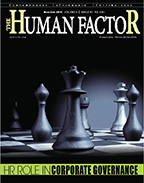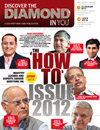SAURABH NIGAM VICE- PRESIDENT – HR, IT & ADMIN, BEROE INC. No margin of error Saurabh Nigam (Vice- President – HR, IT & Admin, Beroe Inc.) says there is a dire need for scientific recruitment and selection process to reduce the level of subjectivity in hiring decisions Issue Date - 01/03/2013 |
 Q. Today, finding perfect talent and retaining it has become a challenge for many companies. What do you think is the ‘perfect’ recruitment and selection strategy? Q. Today, finding perfect talent and retaining it has become a challenge for many companies. What do you think is the ‘perfect’ recruitment and selection strategy?A. There is no one-size-fits-all strategy for recruitment and selection, as the approach is bound to differ with industries and organisations. However, any recruitment and selection strategy should be able to provide a healthy pipeline of talent to the business at an optimal cost by exploring multiple and unconventional sources of talent including talent development and social media. Q. Broadly speaking, what are the major skills and techniques that help you master the selection process? A. Skills: 1 Ability to read the candidate’s answers between the lines. 2 Understanding the body language. 3 Communication skills. Techniques: 1 Behavioural event interviews. 2 Psychometric analysis. 3 Triangulate assessment data from various evaluators before arriving at a final decision. |
 Q. How do you determine the qualifications – both technical skills and behavioural factors – in a prospective employee? Q. How do you determine the qualifications – both technical skills and behavioural factors – in a prospective employee?A. Technical Skills 1 Aptitude tests. 2 Technical interviews. 3 Case studies. 4 Role plays. 5 Situational assessment tests. 6 Behavioural skills. 7 Behavioural event interview (BEI). 8 Psychometric tests like 16 PF, MBTI, Big 5 9 Situational reaction tests. Q. Please describe your experiences with the candidates you have hired in the past? A. Recruitment and selection process gives you an opportunity to understand the person before you take a call on making that person a part of your family (organisation). This very process has helped me develop special bond with the candidates hired by me at all levels. One tends to feel a sense of responsibility towards all those candidates one hires to make them feel comfortable in the organisation. According to me, this goes a long way in creating a strong and healthy bond between the organisation and new hires. Q. Ethics in the field of hiring is based on a combination of factors. Can you elaborate on this? Also, how can we promote ethical practices in human resources function and reduce the negative stigma attached to the headhunter? A. The onus of promoting ethical practices in human resources function lies on the HR practitioners. We have a certain responsibility towards the profession that directly impacts not just the organisations we work for but also thousands of people we come across as recruiters. I think it is imperative for us, the practitioners, to cultivate healthy and ethical professional practices because only then will the profession of HR flourish and be seen as a strategic partner to the business. |



